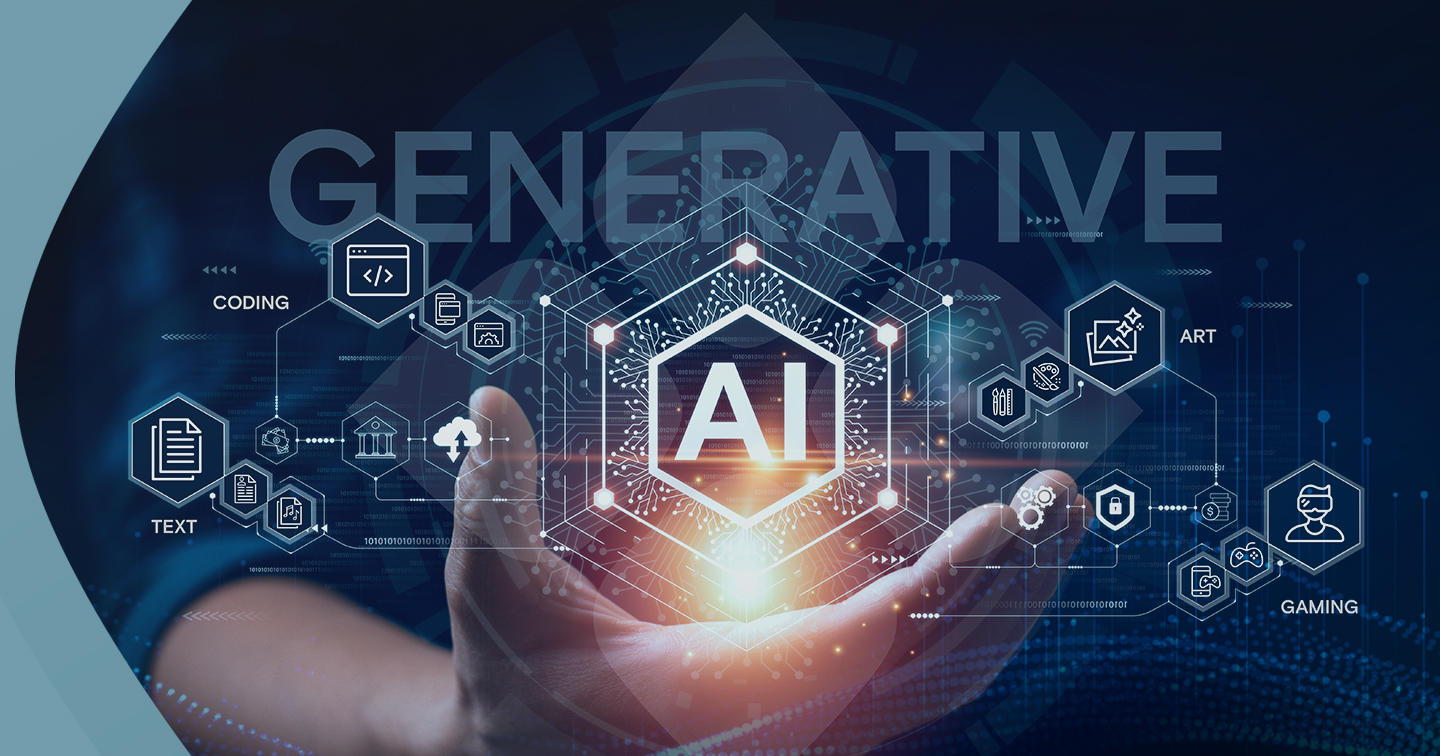
5 Common Challenges You’ll Face with Generative AI in Banking?

Overcoming Obstacles: Navigating Generative AI Challenges in Banking
“Artificial intelligence would be the ultimate version of Google. The ultimate search engine that would understand everything on the web. It would understand exactly what you wanted, and it would give you the right thing. We’re nowhere near doing that now. However, we can get incrementally closer to that, and that is basically what we work on.”
—Larry Page
Page's assertion regarding the pervasive influence of AI is accurate. The increasing integration of AI technologies into various industries has created a distinct dichotomy in the workforce. Individuals adapting to AI in their professional pursuits are witnessing career advancement, while those resistant to such technological shifts are encountering challenges such as workforce reduction and layoffs.
Indeed, while AI is not inherently detrimental, it is imperative for individuals and industries to remain up to date with the trends. Isn’t it?
If your answer is yes, let’s dig into the challenges of Generative AI. Don’t miss out on our last newsletter on Generative AI 101 and Benefits of Generative AI.
Master Generative AI by registering for our two-day programOR
Time Constraints? Grasp the content of your choice
- Restricted Skill Spectrum
- Highly- Complicated Technology
- Data Privacy and Security Threats
- Excessive AI Utilization
- Limited Accuracy
- THREE WAYS WE CAN HELP YOU
Restricted Skill Spectrum
- Restricted Skill Spectrum delineates the challenges arising from a confined array of competencies within a designated domain.
- This limitation may stem from obsolete training paradigms, sector-specific tunnel vision, or evolving skill prerequisites.
- Entities grappling with a restricted skill spectrum confront impediments in aligning with agile industry requisites.
- Mitigating this challenge necessitates strategic interventions like upskilling initiatives and multidisciplinary expertise.
Highly- Complicated Technology
- Highly-Complicated Technology underscores the intricacies and sophistication inherent in advanced technological frameworks.
- This characterization denotes a technology with intricate designs, multifaceted systems, and sophisticated architectures.
- It implies a level of complexity that demands specialized expertise for comprehension and management.
- Incorporating this complexity mandates a strategic approach and adaptive methodologies to ensure the effective development, implementation, and maintenance of highly complicated technologies.
Data Privacy and Security Threats
- Data Privacy and Security Threats encapsulate the multifaceted challenges posed by potential risks to the confidentiality, integrity, and availability of sensitive information.
- This encompasses cyber threats, including unauthorized access, data breaches, and malicious attacks.
- As technology evolves, so do the methodologies employed by threat actors, necessitating a proactive and adaptive security posture.
- Organizations must remain vigilant, investing in cutting-edge technologies and employee training to fight against cyber threats.
Excessive AI Utilization
- Excessive AI Utilization results in unwarranted and disproportionate deployment of artificial intelligence technologies within various contexts.
- This issue arises when organizations or systems overly rely on AI, potentially leading to adverse consequences.
- It can result in resource strain, diminished system responsiveness, and unintended consequences due to algorithmic biases.
- Striking a balance between leveraging AI's capabilities and maintaining ethical, efficient, and sustainable practices is crucial.
Limited Accuracy
- Limited Accuracy characterizes a situation where the precision or correctness of a system, model, or process falls short of desired standards.
- This term signifies a restricted capability to produce results with a high degree of exactness or fidelity.
- In technical contexts, limited accuracy can manifest in various domains such as machine learning models, measurement instruments, or computational simulations.
- Addressing limited accuracy involves refining algorithms, enhancing data quality, and implementing calibration procedures to improve the precision of outcomes.
- Generative Artificial Intelligence stands as a prime choice in contemporary career preferences.
- Acquiring proficiency in this domain and being aware of its challenges, trends , benefits not only constitutes a valuable augmentation to one's skill set but also affords the capacity to operate with heightened diligence and efficiency.
Your initiative to upskill can advance your experiences and skill sets.
Here's the summary: We've covered everything for Challenges of Generative AI. Did this breakdown help you figure out which field piques your interest? If you're willing to gain expertise in Generative AI, sign up for Garranto Academy's two-day Generative AI short course.
THREE WAYS WE CAN HELP YOU
- Get a complete understanding of Generative AI and carry out your first analysis with our subsidized course here.
- Subscribe and Become part of our weekly newsletter and get valuable information straight into your inbox.
- This month, we want to help you finish the year strong and certified! Book application call and secure your spot today! ✉️ admin@garranto.com or 📱 WhatsApp at +6588471852
AI is not inherently detrimental, it is imperative for individuals and industries to remain up to date with the trends. Isn’t it?
If your answer is yes, read our latest newsletter where we talked about generative AI challenges for banking professionals.
Explore more in our new article here - 5 Common Challenges You'll Face with Generative AI